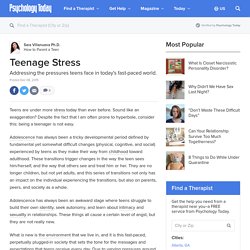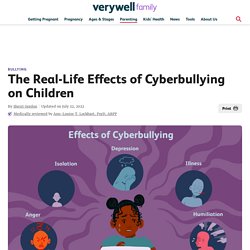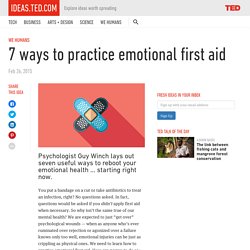

This is fundamentally important as "Parents play a crucial role to help children explore and discover their potential" (Dr. Inderbir, 2019). In this article, I aim to discuss about the various components of stress that work together dynamically, how teenagers can cope with stress and how parents can help their children with stress in modern times.
Firstly, we discuss stress from a psychological and biological perspective. Stress responses originated as an adaptive process and it is understood that harsh and prolonged stress responses may be the precursor to tissue damage and disease (Selye, 1956). Stress has also shown to have lasting effects in cognitive-emotional responses (Levine, 1957). From a psychological point of view, teenagers can be stressed by being exposed to violence, various forms of abuse and issues with their parents' marriage. This stressors include the dysregulation of affect, provocative behaviors, avoidance of intimacy and disturbances in attachment. Some ways in which teenagers may respond to stress would be development of depression, anxiety or even PTSD.
From the same aspect, it is noted that stress can have a drastic impact on the nervous, cardiovascular, endocrine and immune systems. The SNS and hypothalamic-pituitary adrenocortical axis produces stress hormones while the adrenal medulla produces catecholamines. Simultaneously, adrenocorticotropin is produced by the pituitary which causes the adrenal cortex to produce cortisol.
In modern times, teenages also face stress from cyberbullying. This is a relatively new phenomenon and we will dissect it to help us understand more about it and how parents can help teenagers in this aspect. Similar to traditional bullying, cyberbullying leads to significant emotional and psychological distress. The five main effects of cyberbullying are anger, isolation, depression, illness and humiliation. Teenagers may feel particularly overwhelmed if the bullying involves many bullies, causing teenagers to feel that they cannot handle the situation. Teenagers may also feel vulnerable and powerless as the bullying may affect them even if they are at home through a phone or computer and because the victim is potentially affected anytime and anywhere, the victim may feel that the bullying is everywhere and there is nowhere to escape from it. Cyberbullying also causes teenagers to feel alone and isolated as they are excluded and ostracized at school. This has an extremely negative impact on the teenagers as friends are extremely important at this stage of their lives and if they don't have friends, more bullying can happen because of that. This usually leads to victims of cyberbullying feeling disinterested in school and increases their rate of being absent. Victims go absent to avoid facing the bullies or feeling humiliated. This directly affects their grades because their concentration tends to be reduced and may even go as far as causing victims to drop out of school entirely. Finally, teens may also feel suicidal. This is because they feel hopeless and feel that the only way to escape the bullies is by ending their life.
How to help teens deal with stress. 6 Common Triggers of Teen Stress. Teenage Stress. Teens are under more stress today than ever before.

Sound like an exaggeration? Despite the fact that I am often prone to hyperbole, consider this: being a teenager is not easy. Adolescence has always been a tricky developmental period defined by fundamental yet somewhat difficult changes (physical, cognitive, and social) experienced by teens as they make their way from childhood toward adulthood. These transitions trigger changes in the way the teen sees him/herself, and the way that others see and treat him or her.
Teen stress from a teen perspective. Teens Talk About Stress. What Are the Effects of Cyberbullying? Bullying—including cyberbullying—causes significant emotional, psychological, and physical distress.

Just like any other victim of bullying, cyberbullied kids experience anxiety, fear, depression, and low self-esteem. They also may experience physical symptoms, mental health issues, and struggle academically. Here's a closer look at the emotional, mental, and physical effects of cyberbullying. Emotional Effects of Cyberbullying Not surprisingly, cyberbullying is a significant stressor in a young person's life. If you notice a change in your child's mood, don't hesitate to reach out to their healthcare provider for evaluation and support. Your child may feel a range of emotions if they are the target of a cyberbully.
Humiliation Because cyberbullying occurs in cyberspace, online bullying feels permanent. When cyberbullying occurs, the nasty posts, messages, or texts can be shared with multitudes of people. Isolation Anger Powerlessness. What causes Stress in Young Teenagers. What is Stress? - Stressors, Coping and Biology. STRESS AND HEALTH: Psychological, Behavioral, and Biological Determinants. Stress Management. How to help teens deal with stress. 7 ways to practice emotional first aid. You put a bandage on a cut or take antibiotics to treat an infection, right?

No questions asked. In fact, questions would be asked if you didn’t apply first aid when necessary. So why isn’t the same true of our mental health? We are expected to just “get over” psychological wounds — when as anyone who’s ever ruminated over rejection or agonized over a failure knows only too well, emotional injuries can be just as crippling as physical ones. We need to learn how to practice emotional first aid.
Pay attention to emotional pain — recognize it when it happens and work to treat it before it feels all-encompassing. Yes, practicing emotional hygiene takes a little time and effort, but it will seriously elevate your entire quality of life. See Guy Winch’s TED Talk, Why we all need to practice emotional first aid.